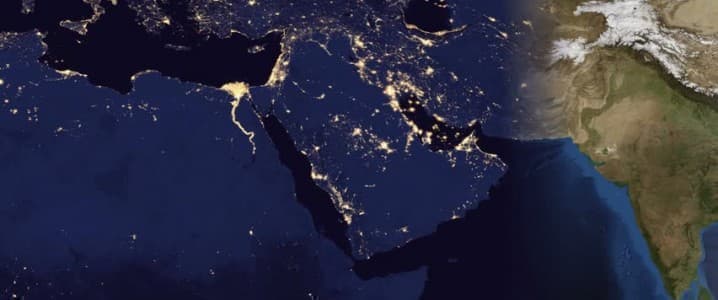Rising Middle Eastern oil production is making the commodity that comes out of this region cheaper compared to Brent-linked grades, which may lead to a price war, Bloomberg has reported, citing an FGE analyst.
“There’s much cheaper crude, and a lot of it coming from the Middle East,” Grayson Lim, a senior oil analyst at the energy consultancy, told Bloomberg.
“Those Brent-linked cargoes will need to be offered at a huge discount for buyers in the [Asia] region to snap up the barrels,” he explained. “But if they’re heavily discounted, there’s a chance that Chinese buyers may come out to buy.”
The warning comes as OPEC+ prepares to start boosting production in response to higher oil prices and the prospect of improving oil demand. However, uncertainty remains heightened as the pandemic shows no signs of subsiding in many parts of the world, including in key markets such as India and the United States.
On the supply side, however, there seems to be a clear upward tendency, with Iran ramping up production as it negotiates with the U.S. the latter’s return to the nuclear deal, and with Saudi Arabia’s easing its voluntary 1-million-bpd output cut next month.
Other OPEC members, notably Iraq and the UAE, will also probably ramp up production quickly after signaling they were eager to start reversing the deep cuts.
Meanwhile, North Sea fields are entering maintenance season, which has reduced the availability of Brent-linked crude oil grades, pushing their prices higher. As a result, according to Lim, the spread between Middle Eastern and Brent-linked crude oil has widened to the most in more than 16 months, Bloomberg reports. With this kind of spread, producers of oil priced on the basis of Brent will need to start discounting their product to make it competitive with the Middle Eastern grades.
By Irina Slav for Oilprice.com
More Top Reads From Oilprice.com:
- Many Drilled U.S. Wells Will Never Be Completed
- Big Oil Is Dead Set On Exploiting The Wind Power Boom
- Big Oil Set To Return To Profit In 2021



















That is why OPEC+ will start to ease its production cuts starting May along with Saudi Arabia also easing its voluntary 1.0 million barrels a day (mbd) also starting May.
OPEC+’s management of the supply and demand balances in the global oil market has been described as brilliant by Occidental’s CEO Vicki Hollub who also said that every American oil producer appreciates the alliance’s efforts.
And despite the sanctions, Iran is managing to export an estimated 1.5 mbd or 71% of its pre-sanction level. Therefore, once US sanctions are lifted, Iran couldn’t add more than 625,000 barrels a day (b/d) to the global oil market being the difference between its pre-sanction exports of 2.125 mbd according to the 2019 OPEC Annual Statistical Bulletin and reported exports of 1.5 mbd under the sanctions.
However, it is very unlikely that sanctions will be lifted even by 2023 because the gulf between the United States and Iran is too wide to bridge.
Dr Mamdouh G Salameh
International Oil Economist
Visiting Professor of Energy Economics at ESCP Europe Business School, London